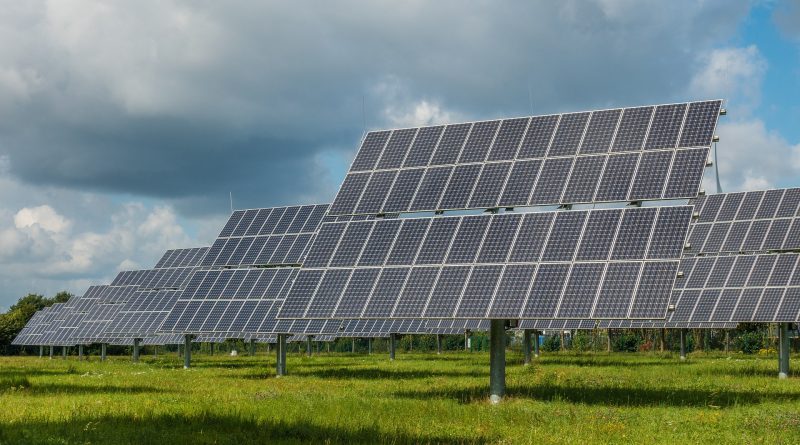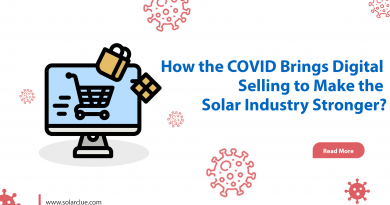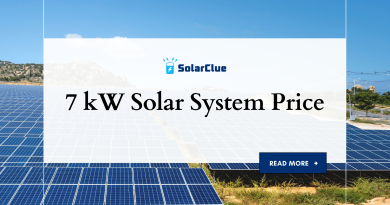Is a solar inverter useful for home purposes?
In recent years, solar power has gained significant attention as a sustainable and environmentally friendly alternative to traditional energy sources. As a result, many homeowners are considering investing in solar panels for their homes. However, not everyone is aware of the crucial role that solar inverters play in harnessing the power of the sun. In this blog, we will explore the usefulness of a solar inverter for home purposes. We will delve into the functions, benefits, and potential downsides to help you make an informed decision.
What is a Solar Inverter?
A solar inverter is a key component of any solar power system. Its primary function is to convert the direct current (DC) energy produced by solar panels into alternating current (AC) electricity, which is compatible with household appliances and can be used to power your home. Essentially, a solar inverter acts as the bridge between your solar panels and the electrical grid.
Functions of a Solar Inverter
1. DC to AC Conversion: As mentioned earlier, the primary function of a solar inverter is to convert the DC energy from solar panels into AC electricity, which is the standard form of electricity used in homes and businesses. This conversion allows you to power your home with the renewable energy generated by your solar panels.
2. Grid Connectivity: Solar inverters also facilitate the connection between your solar power system and the electrical grid. This is crucial as it allows you to feed any excess electricity produced by your panels back into the grid. Additionally, if your panels do not produce enough electricity to meet your needs, the solar inverter automatically switches to using electricity from the grid.
3. Monitoring and Data Analysis: Many modern solar inverters come equipped with monitoring capabilities. This means that you can keep track of the energy production, consumption, and overall performance of your solar power system. These features allow you to identify any issues or inefficiencies and take corrective measures accordingly.
The Benefits of Using a Solar Inverter
1. Energy Independence: By investing in a solar inverter, you are taking a step towards reducing your reliance on traditional grid electricity. This increased level of energy independence can lead to significant long-term cost savings on your utility bills. Additionally, during power outages, your solar inverter can enable you to continue using essential appliances.
2. Eco-Friendly Solution: Solar power is known for its minimal environmental impact. By using a solar inverter, you are actively participating in reducing greenhouse gas emissions and combatting climate change. Your renewable energy generation helps to decrease reliance on fossil fuels, which are responsible for air pollution and carbon emissions.
3. Financial Incentives: Many governments and utility companies offer financial incentives and tax credits for homeowners who install solar power systems. In some cases, these incentives can cover a substantial portion of the upfront cost of purchasing and installing a solar inverter. By taking advantage of such incentives, you can make your investment more financially feasible.
4. Long Lifespan: Solar inverters have a relatively long lifespan, typically ranging from 10 to 20 years, depending on the model and brand. This means that once you install a solar inverter, you can expect it to serve you reliably for a considerable period. Additionally, with regular maintenance, you can extend its lifespan even further.
Potential Drawbacks of Solar Inverters
1. High Initial Cost: While the long-term cost savings of using a solar inverter are significant, there is typically a higher upfront cost associated with purchasing and installing a solar power system. This includes the cost of solar panels, batteries (if you choose to incorporate energy storage), and the solar inverter itself. However, it is essential to consider these costs in the context of long-term financial benefits.
2. Efficiency and Output Limitations: Solar inverters are not 100% efficient. Some energy is lost during the conversion process from DC to AC. Additionally, the output of a solar power system can fluctuate depending on various factors such as weather conditions and panel orientation. It is essential to calculate and evaluate your energy needs accurately to ensure that your system can meet your household requirements.
3. Maintenance and Repair: Like any other electrical component, solar inverters require regular maintenance and occasional repairs. It is crucial to factor in the associated costs and ensure that you have access to reliable repair services if needed. However, an advantage of using solar inverters is that they have fewer moving parts compared to other energy systems, which can decrease the likelihood of mechanical failures.
Conclusion
Discover the transformative power of solar energy with SolarClue® as we delve into the significance of solar inverters in home solar power systems. SolarClue® offers state-of-the-art solar inverters that play a vital role in converting DC energy from solar panels into AC electricity. This process empowers homeowners to harness the sun’s energy, reducing reliance on traditional grid power. SolarClue’s® solar inverters come with a plethora of benefits, including heightened energy independence, contributions to environmental sustainability, financial incentives, and a long lifespan.
While embracing SolarClue’s® solar inverters brings forth numerous advantages, it’s essential to consider potential drawbacks such as initial costs and the need for regular maintenance. SolarClue® encourages prospective buyers to make informed decisions by evaluating their energy needs, seeking professional advice, and understanding the long-term sustainability goals of their homes.
Choose SolarClue® for a greener and more self-sufficient future, where cutting-edge solar technology meets your unique energy requirements. Invest wisely with SolarClue® and embrace the brilliance of solar energy for a sustainable tomorrow.
Frequently Asked Questions
A solar inverter converts DC power generated by solar panels into AC power for use in homes, enabling efficient energy utilization.
Yes, a solar inverter is crucial as it converts the solar energy captured by panels into a usable form for home appliances.
By converting solar power into usable energy, solar inverters reduce dependence on the grid, leading to energy savings and efficiency.
Yes, certain solar inverters have backup functionalities, allowing them to supply power during outages when combined with energy storage systems.
Solar inverters can power various household appliances, including lights, refrigerators, TVs, and other low to medium power devices.
Yes, there are string inverters, microinverters, and hybrid inverters, each with specific features catering to different home solar setups.
The lifespan varies, but on average, solar inverters can last 10-15 years, depending on the quality and maintenance.
While some inverters have DIY options, professional installation is recommended to ensure safety and optimal performance.
Regular inspections and cleaning are advisable, and any issues should be addressed promptly to maintain optimal functionality.
Check with local authorities and utility providers for potential incentives, rebates, or tax credits available for adopting solar energy systems at home.



